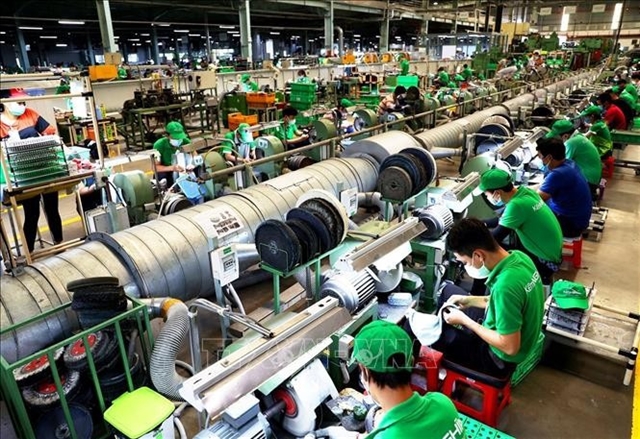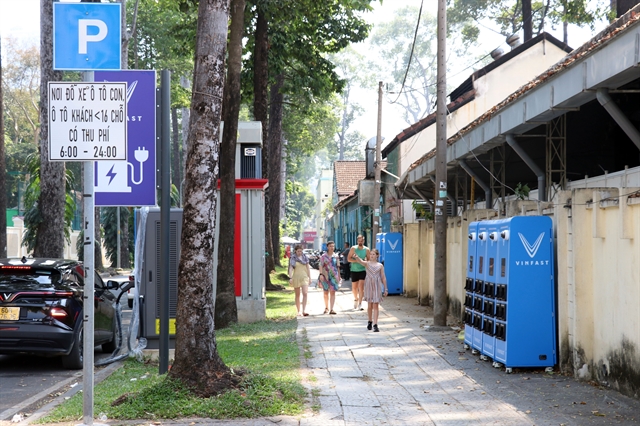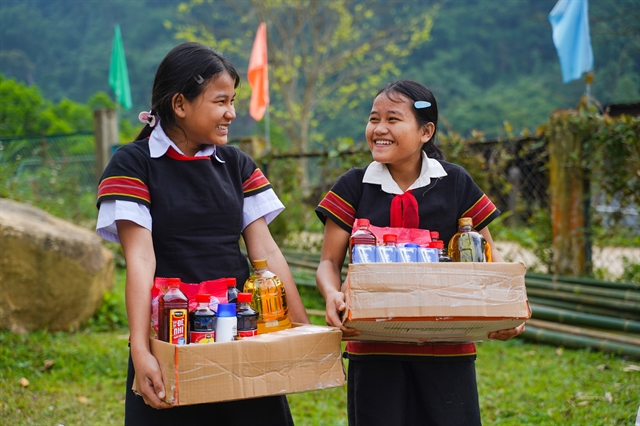 Economy
Economy

 |
| Illustrative photo. MoF is required to study and propose specific support measures for businesses affected by US reciprocal tariff policies, with completion required within November. — VNA/VNS Photo |
HÀ NỘI — Prime Minister Phạm Minh Chính has tasked the Ministry of Finance (MoF) with urgently developing support measures for businesses impacted by the US reciprocal tariffs within this month, as well as reviewing import-export tax policies.
Prime Minister Chính has signed Dispatch No 221/CĐ-TTg, requesting ministries, sectors, localities and State-owned groups to prioritise maintaining macro-economic stability and accelerating export growth.
Under this directive, the MoF is assigned to maintain an appropriately expansionary fiscal policy with targeted and effective measures and to review and adjust import–export taxes as needed to support exports and enhance domestic production capacity.
In addition, the ministry must study and propose specific support measures for businesses affected by US reciprocal tariff policies, with completion required within November.
The customs force has been instructed to coordinate with relevant units to strictly control the quality of goods during clearance procedures, prevent substandard goods and curb violations related to intellectual property and origin fraud.
The Ministry of Industry and Trade (MoIT) is tasked with implementing strong measures to promote exports, especially toward the end of the year and early next year when international consumer demand rises during Christmas and New Year holidays.
The ministry must accelerate trade promotion activities, diversify markets, products and supply chains and expedite negotiations and signing of bilateral and multilateral trade agreements with high-potential partners.
It has also been instructed to continue negotiations on the reciprocal trade agreement with the US as directed. Vietnamese trade offices abroad are to enhance support for businesses in leveraging free trade agreements by providing information, facilitating trade promotion and assisting in product and brand marketing.
The MoIT must also strengthen linkages between domestic enterprises and foreign-invested companies to help local firms integrate more deeply into global supply chains.
The State Bank of Vietnam was tasked with operating a monetary policy proactively and flexibly, enhancing inspection and supervision to ensure credit flows toward production, priority sectors and key growth drivers, and managing exchange rates and interest rates in line with market conditions to support production, business and investment attraction.
The Ministry of Agriculture and Environment was instructed to drastically implement solutions against illegal, unreported and unregulated (IUU) fishing, work toward lifting the EU 'yellow card' and promote digital transformation and sustainable development in the fisheries sector.
The ministry must also accelerate negotiations on market access, mutual recognition of food safety standards for key fruits and vegetables, and promote geographical indications, brand development, production-area codes and traceability systems.
The Ministry of Foreign Affairs will intensify economic diplomacy, support enterprises investing and trading overseas, and direct overseas Vietnamese missions to strengthen connectivity with localities and businesses in the host countries. It must also mobilise support among GCC member countries to accelerate negotiations on the Việt Nam – GCC FTA.
The ministries of Industry and Trade, Agriculture and Environment, and Foreign Affairs will set up working groups to develop new markets in the Middle East, Africa and Latin America, resolve outstanding FTA obstacles and speed up negotiations for new FTAs in late 2025 and early 2026.
Local authorities must promptly identify and resolve difficulties facing exporters. Provinces with agricultural exports via land borders must regularly update border-gate information and advise farmers and exporters to regulate production, packaging and transportation to avoid congestion.
State-owned groups, corporations and export enterprises were urged to adjust production and business plans flexibly, step up the application of technological advances, upgrade product quality and competitiveness, and diversify markets, products and supply chains.
Deputy Prime Ministers will oversee the implementation according to their assigned responsibilities, while the Government Office will monitor progress and report to competent authorities.
According to the National Statistics Office, the country’s total import-export turnover reached US$762.4 billion in the past 10 months, up 17.4 per cent year-on-year.
Of this, exports amounted to $391 billion while imports totalled $371.4 billion, resulting in a trade surplus of $19.6 billion.
However, amid increasingly complex global developments and rising challenges, the PM requested stronger efforts to stimulate exports and contribute to achieving the national growth target of over 8 per cent for this year while safeguarding macro-economic stability. — VNS




